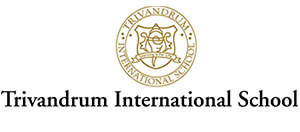In today’s rapidly evolving world, the ability to learn continuously and adapt to new information is essential. At the heart of this ability lies one critical skill—research. Research skills are not just for academic success; they form the foundation of lifelong learning. These skills enable individuals to explore, question, and find reliable information, making them invaluable in both personal and professional life. This article delves into why research skills, particularly for students, are vital and how they can foster lifelong learning.
The Importance of Research Skills for Students
Research skills for students are essential because they provide a structured approach to gathering, evaluating, and utilising information. In an age where information is abundant, discerning the quality and relevance of data is a skill that students must develop early on. This ability to sift through vast amounts of information and identify what is credible ensures that students are well-prepared for the complexities of the world beyond the classroom.
Developing Critical Thinking Through Research
One of the key benefits of strong research skills is the development of critical thinking. When students engage in research, they are encouraged to ask questions, seek evidence, and analyse various perspectives before forming conclusions. This process sharpens their analytical abilities, allowing them to approach problems methodically. Over time, this practice of questioning and evaluating information becomes second nature, equipping students with the mindset needed for lifelong learning.
Fostering Independence in Learning
Research skills empower students to become independent learners. Instead of relying solely on teachers or textbooks, students with well-honed research abilities can seek out information on their own, dive deeper into topics of interest, and explore new areas of knowledge. This independence not only enhances their academic performance but also fosters a love for learning that persists throughout life.
Preparing for the Modern Workforce
Incorporating research skills into education also prepares students for the demands of the modern workforce. Employers increasingly value employees who can think critically, solve problems, and adapt to new situations. Research skills directly contribute to these competencies. For example, in the workplace, professionals are often required to gather information, analyse it, and present it clearly and persuasively. These tasks mirror the research process, making students who have developed strong research skills better equipped for their future careers.
The Role of Research in Informed Decision-Making
The ability to conduct thorough research is vital for informed decision-making. Whether it’s making choices about further education, career paths, or personal matters, research skills enable individuals to gather all necessary information, weigh the pros and cons, and make decisions that are well-informed and thought-out. This decision-making process is a cornerstone of lifelong learning, as it encourages continuous evaluation and adaptation based on new information.
Navigating the Digital Age with Research Skills
In today’s digital age, where misinformation and fake news are prevalent, research skills are more important than ever. Students must learn to navigate the vast amounts of information available online and distinguish between credible sources and unreliable ones. This skill is crucial not just academically, but also in their personal lives, where they must make informed choices about the media they consume, the products they buy, and the opinions they form.
Cultivating Research Skills in Students
To cultivate research skills, educators can encourage students to engage in activities that require them to explore topics deeply. Assignments that involve researching a topic, writing reports, or presenting findings help students practice these skills in a structured environment. Additionally, teaching students how to use digital tools and databases effectively can enhance their ability to find and evaluate information.
Research skills are the bedrock of lifelong learning. For students, these skills are essential not only for academic success but also for developing critical thinking, independence, and informed decision-making. As they progress through life, the ability to conduct research will empower them to continue learning, adapting, and thriving in an ever-changing world. At TRINS, we are committed to nurturing these skills, ensuring that our students are well-prepared to become lifelong learners and future leaders.



